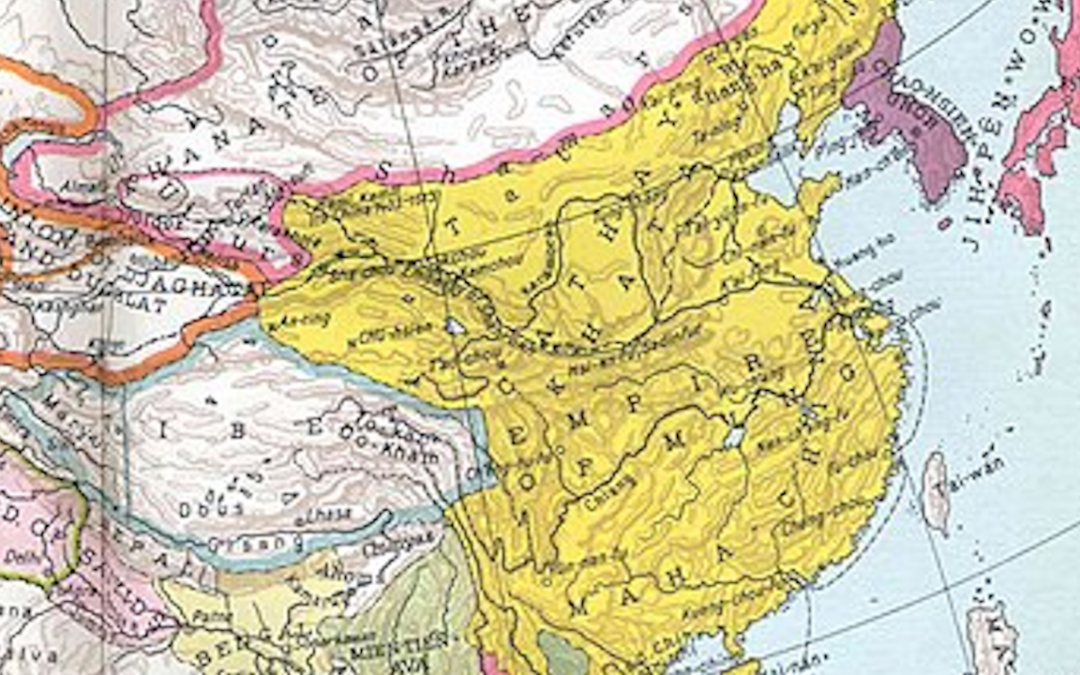China is not just a country, it’s one of the great civilizations from history. So many great warriors, poets, religious figures, kings and emperors have lived and died without ever even leaving China. For much of it’s history imperial China was isolated and inward looking, the ruling family attempting to limit any influence from outside China. However there was a time when Chinese ships ruled the waves, conducting large expeditions overseas as far as Africa. Many Chinese explorers have left their mark on history, if overshadowed in recent centuries by Europeans. From ancient expeditions into India, Tibet and Siberia, to modern trips to Antarctica. There have been countless Chinese explorers seeking to map out and visit previously unknown areas. In this article we look at just ten of these.
10: Xu Fu
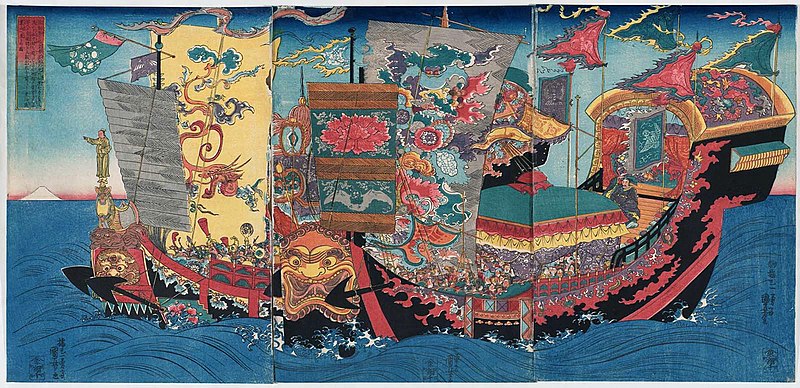
Xu Fu was the official court sorcerer to the Chinese emperor, advising on all things magical and legendary. The ruler he advised was obsessed with immortality, desperate to never die. So he had Xu Fu cook up all kinds of strange chemicals and potions, often including dangerous heavy metals. Realizing such efforts were only making his life shorter, the emperor turned to legend. According to legend there was a place called Mount Penglai, where a group of immortal wizards live. He sent Xu Fu on a voyage of exploration across the sea in the hope of finding Mount Penglai and retrieving the elixir of life. And so Xu Fu set out with a fleet of some 50 ships, bringing with him thousands of young virgins as an offering to the wizards.
For years the fleet sailed, yet no matter where they went, they found no legendary mountain. Soon he returned, claiming a giant fish had prevented him from sailing any further. So the emperor gave him a force of archers to slay the sea creature, and the expedition set off once more. But this time they never returned, as if the entire fleet disappeared. Some say he found the legendary mountain and decided to stay there. Others say the fleet was lost at sea, or settled in a distant land.
9: Xuanzang
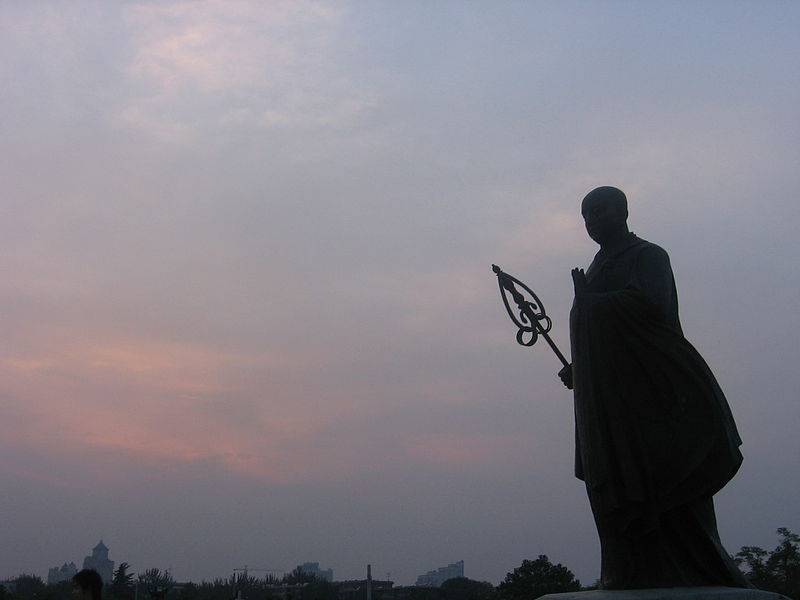
Xuanzang was a Buddhist monk in Chine during the 7th century. A devout Buddhist, he was dissatisfied with the lack of religious texts that had spread to China from India. At the time only some areas of India were known to the Chinese, it was an age long before globalism. So in his search for knowledge he travel. First he traveled extensively across China itself, reaching many important religious shrines. Still with no answers he walked to India, exploring areas few Chinese had ever been close to. For 17 long years he explored India, recording in detail his discoveries and experiences. Here he learned various Indian languages and worked as a translator, earning the ear of Indian kings. Xuanzang traveled as far as Afghanistan, spending time in the Hindu Kush.
8: Huang Yiguang
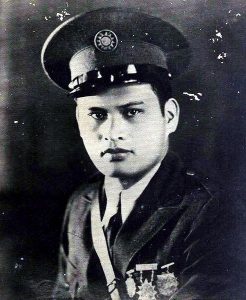
Born in Mexico, Huang Yiguang came from a wealthy and well connected Chinese family. A trained pilot, he served in the air force of the Republic of China during world war two. At the time China was divided between the Republic’s forces, the Japanese, and communist forces. He is most known for attempting to assassinate Wang Jingwei, a politician notorious for collaborating with the Japanese. With Japanese help he was installed as the president of China in the 1940s. His plot to kill Wang was simple. As a respected pilot and military figure, he was able to get inside the president’s inner circle. But for some unknown reason his plot against Wang was discovered, and in 1940 Huang Yiguang was put to death. Before the war began he went on numerous aerial expeditions, exploring previously unfamiliar areas from the sky.
7: Zhang Qian
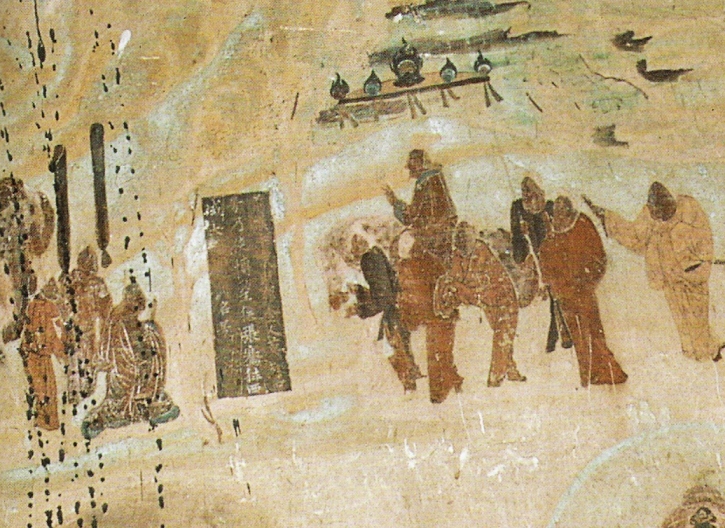
In ancient times China was among the most well connected kingdoms in the world, regularly sending envoys and messengers abroad. One of such envoys was Zhang Qian. Qian was a valuable asset to his employer, travelling to areas of the world no Chinese official ever had. At time he visited the Parthian empire, Macedonia, and much of Central Asia. By visiting these areas he laid the foundations of a vast trade network leading back to China. While in India he spent years attempting to form a direct trade route by land back to China, but even after three separate missions he was unable to do so. However, the resulting trade between China and Persia was to last a very long time, helping both empires grow fabulously wealthy. What’s more, he left a series of detailed reports, later used as a road map by envoys and explorers following in his footsteps.
6: Ban Chao
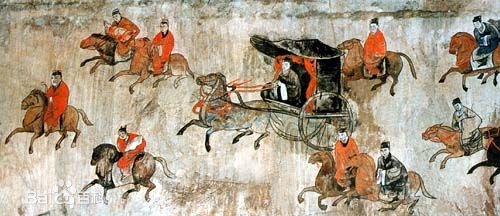
Ban Chao was a military general of the Chinese Han Dynasty. Much of China and central Asia was under Han control during his lifetime. As the chief military officer of their Central Asian territory, Ban Chao was an incredibly powerful man. For more than 30 years he was in this position, leading Han troops in a fight against central Asian tribes. Before rising to such heights he was an intellectually driven young man. Raised by a historian father, Ban Chao ventured to new areas to the west, hoping to satisfy his wanderlust. This curiosity showed up again later in life when he sent envoys even further than he himself got. One of such envoys was actually sent to the Roman Empire.
5: Zhou Man
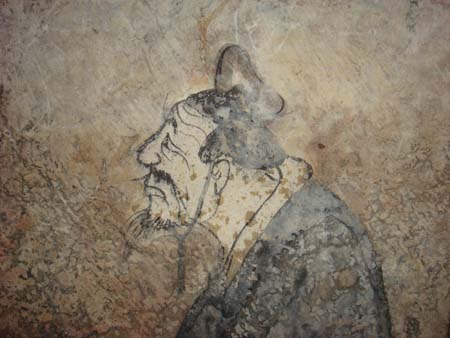
Born into a wealthy merchant family, Zhou Man was raised in a world where sea voyages were a regular part of business. While still a boy his father died at sea en route to Korea. But his father’s untimely death did not sway Zhou Man away from a naval career. Slowly he worked his way up through the Chinese navy. Eventually the emperor himself found Man impressive, making him the chief naval commander of his empire. With this position, he and the numerous ships he commanded set out into the Indian ocean, exploring areas previously unknown to China. Sources at the time claimed the expedition reached more than 30 different countries.
4: Faxian
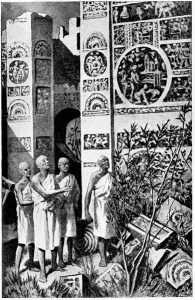
Long before Xuanzang ever dreamed of travelling to India there was Faxian. Also a Chinese Buddhist monk, he walked to India by foot, passing through a large desert and scaling many mountains. When his perilous journey was finally complete, he had reached northern India. From here he traveled extensively. Crossing into what is now Nepal, he visited the birthplace of the Buddha. For many years he wandered the great Indian continent, spending two years in Sri Lanka alone. Having gathered all kinds of important historical and religious documents he eventually decided to set sail again for China.
But then a storm blow his ship of course, stranding him on a large island. Today it is assumed that is the island of Java in modern day Indonesia. After many months there he was able to board a ship forever. He returned as a hero and cemented his place among the legendary Chinese explorers. In his later years Faxian wrote a book all about his travels in India, going in detail on the geographic make up of that region.
3: Jiang Xiaowan
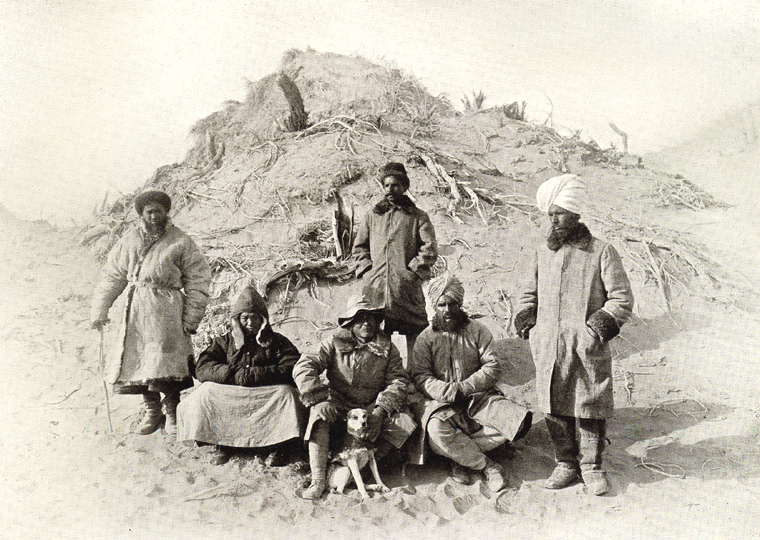
Jiang Xiaowan was a 19th century Chinese translator who rose to prominence by working with the Hungarian archaeologist Aurel Stein. Stein was a well traveled researcher, but in order to effectively travel east and central Asia he needed an interpreter. Jiang Xiaowan was the interpreter Stein needed, and together they traveled all over the place, collecting important historical documents in order to preserve them. Aurel Stein was the first important scholar to study many areas of Asia, including the Dunhuang caves deep within the Chinese interior. He also spent much time exploring and excavating areas of Central Asia, during a time when England and Russia were both struggling for influence there. Many of the documents he and Xiaowan collected are now among the most valuable and important in the world. It’s funny that Xiaowan became one of the great Chinese explorers thanks to but a chance meeting with Stein.
2: Qiu Chuji
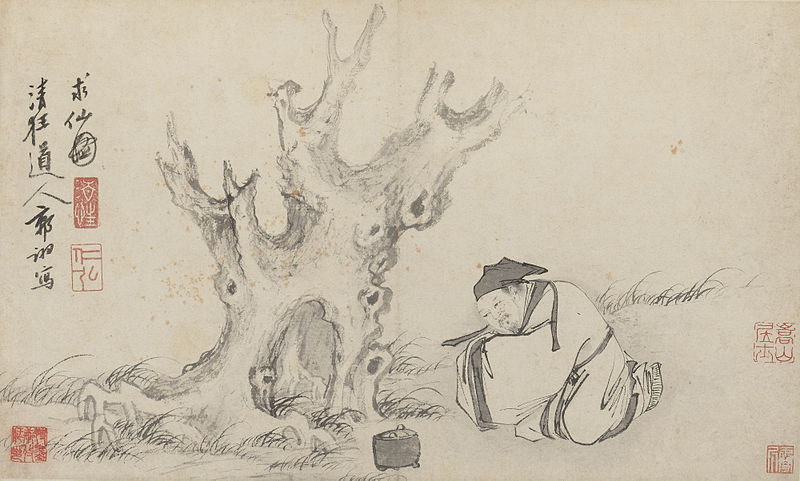
Qiu Chuji was a vastly important philosopher of ancient China. Such was his reputation for knowledge of the mysterious that Genghis Khan himself summoned Qiu Chuji to visit him. But the journey to visit Khan took him through all kinds of difficult lands, crossing from China into Mongolia and into central Asia. For many months he crossed many deserts and cold icy rivers in order to reach Genghis Khan’s camp. Genghis Khan asked Qiu Chuji if there was any way for a human to achieve immortality, whether through spirituality or otherwise. Before long Chuji had explained to him that immortality in that sense is impossible, but by living a just life there is hope of reincarnation. After spending much time with the Khan teaching his philosophy, Qiu Chuji left.
But now with a taste for adventure he decided to explore some new areas before heading home to China. In what’s now Uzbekistan he was amazed by a community of Chinese origin who long ago migrated to the area. From the Aral to the Yellow Sea, he witnessed all kinds of towns and cities, gaining a unique view of human existence. He walked the great wall of china and much of Mongolia, visiting lesser known religious temples along the way. With his written account of these areas, other Chinese explorers would compare their own travels to the areas in his story. It’s said Genghis Khan enlisted the help of numerous Chinese explorers, philosophers, and learned men to aid his cause.
1: Zheng He
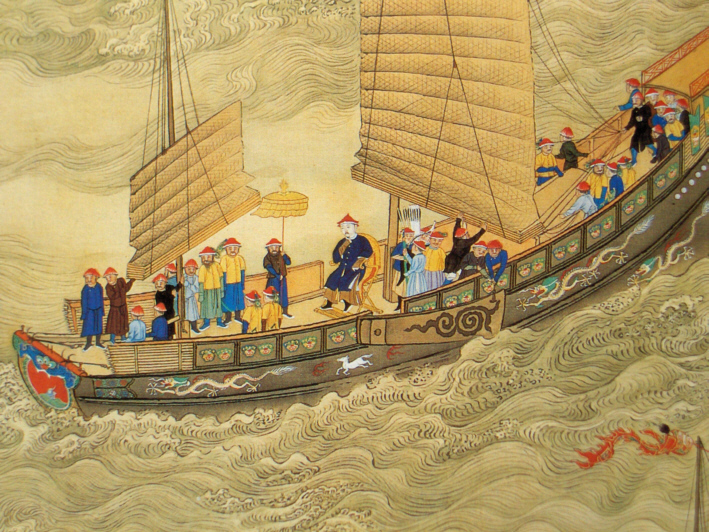
In the 1300s imperial China had become so wealthy they were sending shipments of treasure to foreign kingdoms as part of diplomacy. They would literally just send fleets of ships out to find new countries to shower in gold and jewels. Their routes of travel built upon the work of numerous Chinese explorers from the past. The commander of such expeditions was Zheng He, a man who went down as a legendary figure of Ming Imperialism. Born to a Muslim family, he adopted the name Zheng in order to be better accepted in Chinese society. It seems to have worked as He was soon a favorite of the emperor himself. On being made commander of the Imperial fleet, Zheng He prioritized expending trade between China and the Arab states.
When that paid off, he expanded further, sending fleets in every direction. Some of Zheng He’s treasure fleets reached as far as east Africa. The fleet he personally commanded was made up of more than 300 ships, carrying 27 thousand people! They were perhaps the first Chinese people to ever reach Africa. When there they gifted the locals with gold silk and pearls. The gifts they received in turn were equally grand and alien seeming: camels, zebras, even a giraffe. Africa was just one of many areas discovered by Zheng He and his treasure fleet. But it is without a doubt the most legendary accomplishment of his legacy.

